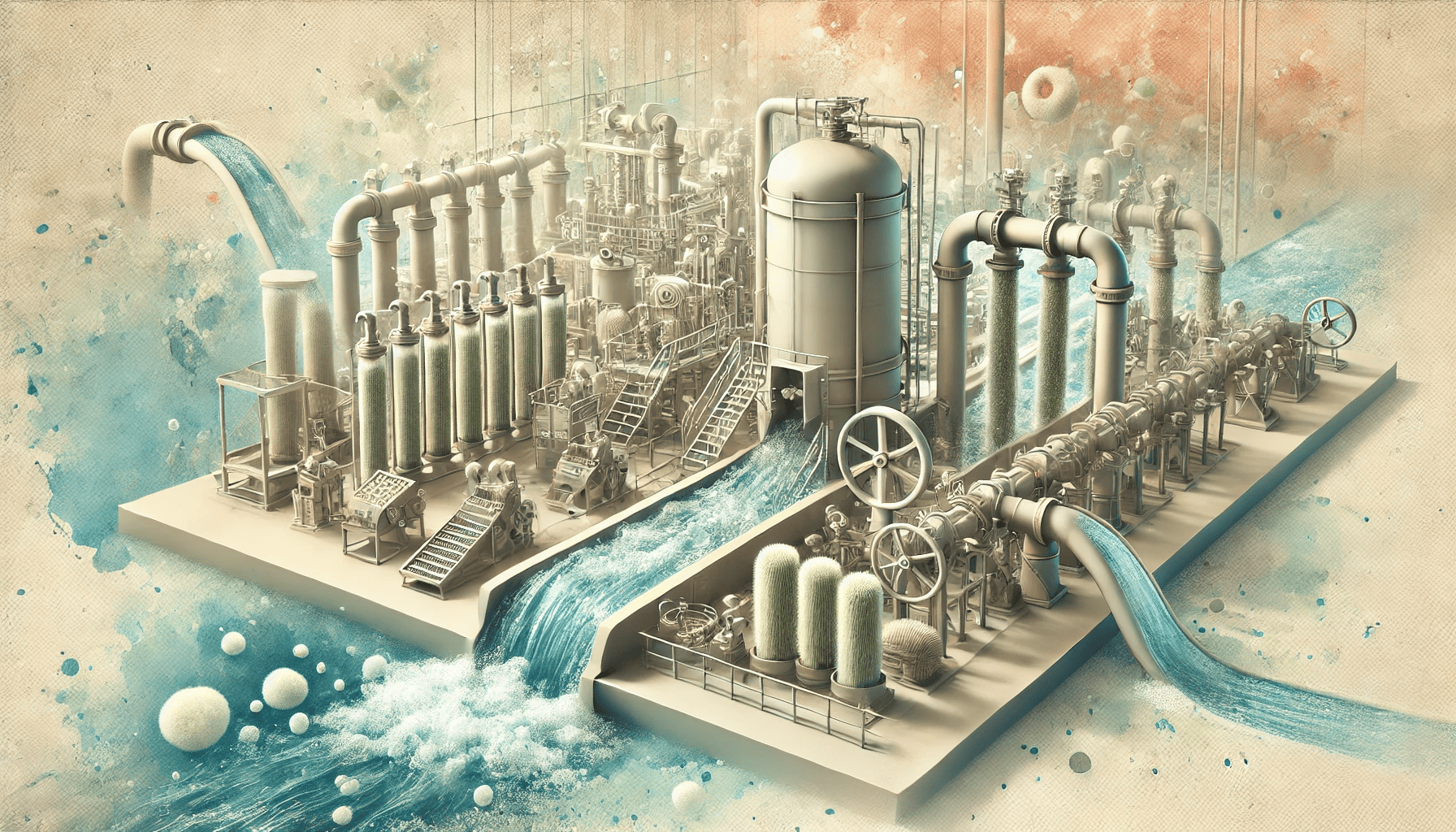Filtration systems are a key component in modern industrial applications, ensuring cleaner outputs and more efficient processes. In industries like pulp and paper, the role of these systems extends far beyond basic water treatment. They are integral to enhancing product quality and optimizing operational costs. This widespread use highlights their importance in sustainable and cost-effective manufacturing.
The pulp and paper industry relies heavily on water during various stages of production, from fiber processing to washing. Filtration technologies facilitate the treatment of both raw water and effluents, making the process more efficient. By ensuring cleaner water and more precise fiber separation, filtration systems help reduce waste and improve the final product’s consistency. These advancements also lead to substantial savings in operational costs.
As the industry faces increasing demands for higher quality and environmental responsibility, filtration systems evolve to meet these needs. Modern technologies continue to improve the effectiveness of fiber recovery and separation, helping reduce production time and costs. The integration of these systems is a vital aspect of ensuring the sustainability of pulp and paper production. Ultimately, filtration plays a crucial role in maintaining the industry’s competitive edge in an ever-changing market.
Filtration systems in water treatment and fiber separation
Water plays an essential role throughout the pulp and paper production process, from cooking and bleaching to washing and recycling fibers. Filtration systems are vital in cleaning and treating water, ensuring that it meets required standards before reuse. These systems remove impurities and particles that could otherwise compromise the efficiency of the production line. The effectiveness of filtration in water treatment directly impacts the overall quality of the final paper products.
Advanced filtration technologies have a significant influence on fiber separation. These systems allow for the precise removal of unwanted materials during the pulping process, contributing to a higher yield of usable fiber. With the implementation of modern fractional separation systems, the industry can achieve a more thorough separation, leading to improved fiber quality. As a result, manufacturers are able to reduce waste and optimize the quality of the paper produced.
The integration of filtration systems in water treatment and fiber separation not only enhances the environmental sustainability of the pulp and paper industry but also boosts its economic efficiency. By streamlining operations and reducing costs, these technologies support more sustainable practices across the industry. The ability to reuse water and recover fibers more effectively has revolutionized production, making it both cost-efficient and environmentally responsible. This ongoing improvement is crucial for the future of pulp and paper manufacturing.
Role of filtration in reducing production costs
The implementation of modern filtration technologies has had a transformative effect on the pulp and paper industry, especially in terms of cost reduction. By improving water reuse and fiber recovery, these systems significantly lower operational expenses. Efficient filtration leads to the recycling of water, reducing the need for fresh water intake and minimizing the costs associated with water treatment. This makes the production process more sustainable while also improving the bottom line for manufacturers.
A key advantage of filtration systems is their ability to minimize waste generation during production. These systems target specific contaminants, ensuring that only the desired fibers and materials are retained. By removing unwanted substances, the pulp and paper industry is able to produce cleaner and higher-quality products. This leads to less waste being disposed of, contributing to reduced landfill costs and waste management efforts.
Filtration technologies also provide operational savings through enhanced maintenance efficiency. With properly maintained filtration systems, the need for frequent equipment repairs or replacements is minimized. Additionally, improved filtration performance reduces downtime, as systems operate more consistently over extended periods. To summarize the cost-saving benefits, the main advantages include:
- Reduced water consumption due to effective recycling.
- Lower waste disposal costs through better filtration.
- Decreased need for frequent maintenance, enhancing system longevity.
- Improved energy efficiency in the production process.
Efficiency of filtration in pulp and paper production
The introduction of modern filtration systems has revolutionized pulp and paper manufacturing, offering substantial efficiency improvements. These systems are designed to streamline processes such as water treatment and fiber separation, allowing for higher yields and more consistent quality. With precise filtration, manufacturers can achieve better results with fewer resources, leading to more cost-effective operations. Efficient filtration directly translates to reduced production times and increased profitability for producers in the industry.
Incorporating advanced filtration technologies allows the pulp and paper industry to optimize water usage and reduce waste. The recovery of fibers and water is an essential step toward reducing environmental impact and operational costs. Manufacturers can recycle water with greater efficiency, ensuring that each drop is utilized to its maximum potential. This innovation in water and fiber management plays a key role in the industry’s shift towards sustainability and resource conservation.
Impact on operational sustainability
The ongoing development of filtration technologies has a significant impact on the environmental sustainability of pulp and paper production. By enhancing water treatment and reducing the use of chemicals, filtration systems help minimize the industry’s ecological footprint. These systems ensure that effluents are cleaner and that fewer harmful substances are released into the environment. Sustainable production practices are now more accessible thanks to efficient filtration systems.
Economic sustainability is also a direct benefit of implementing advanced filtration systems. As these technologies reduce water and waste management costs, they enable companies to operate more profitably while maintaining their environmental commitments. The ability to recycle water effectively decreases reliance on external water sources, which is increasingly important in areas with water scarcity. These advancements offer long-term financial and ecological benefits, supporting both profitability and environmental stewardship.
Questions and answers
Filtration systems improve efficiency by streamlining processes like water treatment and fiber separation, leading to reduced production times and better quality.
They help reduce water consumption, minimize waste, and decrease the use of chemicals, contributing to both environmental and economic sustainability.
By enabling water recycling, improving waste management, and reducing operational downtime, filtration systems lead to lower production costs and improved profitability.

